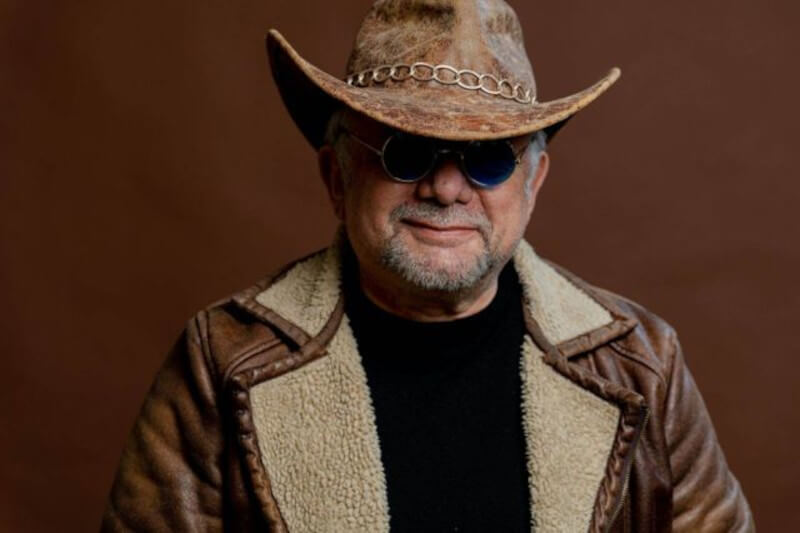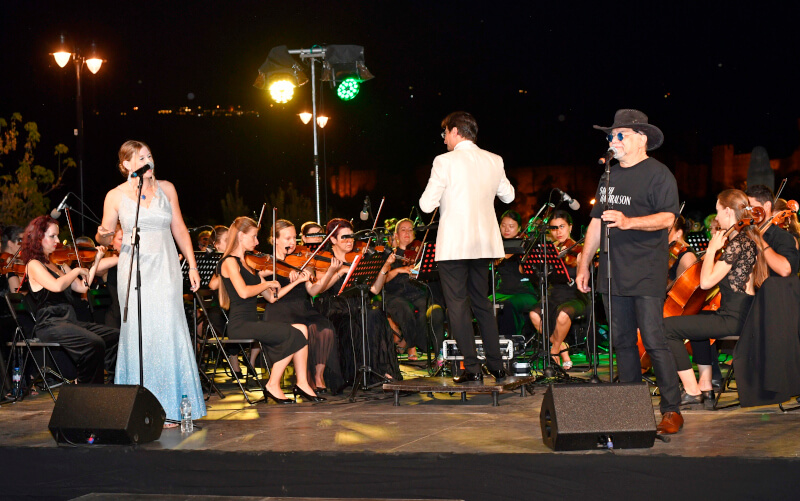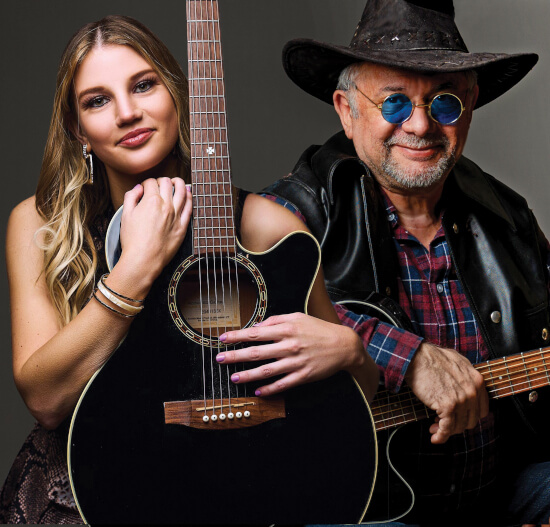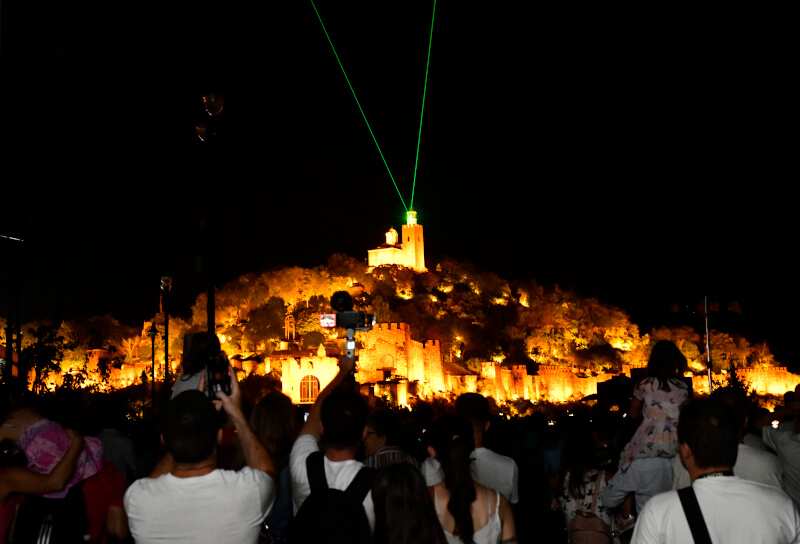
Barney Esville is not your typical country musician. Unlike most “fiddlers,” he is a northerner and not even the US kind. He comes from Bulgaria, and by day he takes care of the community affairs of the northern Bulgarian city of Veliko Tarnovo. He usually goes by Neyko Genchev and serves as the city’s deputy mayor.
Neyko is no conventional public servant either. A seasoned entrepreneur, he favors efficiency over bureaucracy. He is not afraid to speak truth to power and would rather hang out with artists and creators like himself than with official types. (In addition to a singer and multi-instrumentalist, Neyko is a translator, poet, linguist, and publisher.) He bristles at being called a “politician” and feels that he is one only in the ancient Greek sense of the word: politician comes politikos, a term meaning “civic” that was applied to those interested in and tending to their community. He entered politics exactly because he believes he can do something for his city.
His vision for Veliko Tarnovo includes community development through support for artistic initiatives like the Varusha South Festival, whose second edition took place on August 18–20 this year.
Barney/Neyko’s duet with US country musician Sarah Harralson was a leading act in the Firefly Over the River concert on August 19, a fundraiser for the Veliko Tarnovo hospital organized as part of the Varusha South Festival and supported by the America for Bulgaria Foundation.
In this interview for the ABF newsletter, Neyko Genchev/Barney Esville talks about what country music means to him, how Bulgarian songs from the 1980s and 1990s are getting an unexpected revival as country hits, and why he chose a life of service over retirement.
America for Bulgaria Foundation: What made you see the potential of songs like “Hello, My Friend?” and “Time and River” to turn from symbols of pop culture in Bulgaria into country music hits?
Neyko Genchev: To be honest, I did not have such expectations, nor did I have a specific vision. The first remake I worked on was [Bulgarian pop star, ed.] Rositsa Kirilova’s song “Live for the Day.” This happened during Covid times when I had more time for such activities. I decided to make this song for my own enjoyment, but because I like to do things perfectly, I decided to hire musicians from Nashville for a full authentic flavor.
Two things happened during Covid times. A lot of platforms appeared that made it very convenient to work remotely. And with events and performances canceled, musicians were out of work and literally starving. The second thing that happened was that it was conceivable to hire top musicians from Nashville at a reasonable price.

Country music is a very small part of my musical preferences, but back in the day, 30–40 years ago, when I was very young, I really liked country music, and thanks to it I started learning English. It is really enjoyable and easy to learn English with country music simply because the old country singers of the caliber of Dolly Parton and Kenny Rogers have wonderful diction, and each song tells a story.
Country music has deep roots in American culture. When I was very young, country music was a symbol — a symbol of freedom, a symbol of free will. In a way, it represented America for us, the dream we were striving for, so I’ve kept a special feeling for country music, apart from recognizing its qualities as a genre.
I made “Live for the Day” in the style of classic country, which I love and which turned me on to this music.
ABF: “Live for the Day” reached the #23 spot in the prestigious Hotdisc Top 40 UK Country Chart. Is this what encouraged you to record the Bulgarian evergreen hits “Hello, My Friend?” and “Time and River,” which did even better (“Hello, My Friend?” climbed to #15 in the chart, and “Time and River” ranked at #13 at the beginning of September)?
N.G.: Appetite comes with eating, as they say. This became the Barney Esville plan to remedy an injustice and fill an absence. During the years of communism, western listeners did not have the opportunity to listen to these great Bulgarian hits, so I started changing that, one song at a time. (laughs) The songs are really well liked and have great reviews from journalists literally all over the world.
Country Music Radio/CMR Nashville has a weekly audience of 700,000, and “Live for the Day” spent 16 weeks on the chart, reaching millions of people worldwide.
ABF: Your plan is a success thanks in part to a Bulgarian-American collaboration. Nashville singer/songwriter Sarah Harralson sings on both “Hello, My Friend?” and “Time and River.” There is symbolism in the fact that both songs are about friendship. In this case, a Bulgarian-American friendship. Do you think there can be friendship between countries?
N.G.: I am 100% positive. People everywhere experience the same emotions — joy, friendship, sadness — and these are caused by roughly the same things, although of course there are major cultural differences… There can be friendship between countries, too, an outstretched hand offering help, trust. We see plenty of evidence of that.
We have a saying in Bulgaria that “he who sings doesn’t think evil thoughts.” We musicians joke that “he who sings doesn’t think, period.” (laughs) Communicating at the level of culture builds friendships very quickly. Moreover, we have concrete evidence of America’s friendship and not just when it comes to Bulgaria. Americans are compassionate people, always ready to help without asking for anything in return. We Veliko Tarnovans are particularly grateful to the America for Bulgaria Foundation.
As deputy mayor I am responsible for education, social work, youth activities, and athletics, in addition to culture. Right now, for example, Telerik Academy School’s is accepting applications for its free IT training courses. This is a wonderful thing. The academy has equipped more than 20,000 young Bulgarians with extremely valuable skills, relevant to the needs of modernity, and helps them develop a wide array of digital and cognitive abilities, build interpersonal skills, etc. This is possible thanks to the strategic partnership with the America for Bulgaria Foundation.

This is what helps to develop friendship and trust between our countries. The Foundation’s contribution to the children’s ward at the Veliko Tarnovo hospital is another great gesture. And Veliko Tarnovo is just one among many beneficiaries.
Countries are made up of people, and it is normal for them to have the same emotions, the same relationships, the same ups and downs in their relationships. I think that this is what we should hold on to and what we should strive for — direct relations between peoples.
ABF: You and Sarah come from different cultures and generations, but you also have a lot in common — apart from being musicians, you’re both very involved in your communities. For example, you left a successful career as an entrepreneur to serve your community as deputy mayor. What motivated your choice?
N.G.: I’ve just reached that stage in my development. I started a business from scratch, from a single computer, bought secondhand, growing it to the second publishing house in Bulgaria in terms of book production volume, acquired a printing house, etc. I also have a stake in other businesses. I can now retire and go to an island like some people do, but I’m not interested in that kind of thing. I feel the need to do something, to leave something behind. That’s what interests me, it’s a challenge, and even more so, seeing others fail motivates me to try.
It gives me satisfaction that I can bring about change, even if it is a small change.
ABF: What is your hometown to you?
N.G.: Veliko Tarnovo is something very special in my life. I love this city like I would a living being. Every time I look at it, quite frankly, my heart swells. I love it, and it pains me when it has a problem. I feel very closely connected to it.
For me, it is the most beautiful city in the world, without any exaggeration.
ABF: Judging by the 48 Hours Varusha South Festival in August, where Sarah and you performed together for the first time, Veliko Tarnovo is also the most united city. It seemed as if everyone participated in the festival: municipality, artistic and civic organizations, businesses, churches, individual citizens. Why are such festivals not just parties — and do they have a role in awakening and uniting a community?
N.G.: Precisely because they gradually, slowly, create a community. Everyone participates, everyone gives something of themselves. A party is something else, it is just entertainment, while here we also had an arc of development, everyone had to overcome something, some difficulty, sometimes even their internal barriers.

Everyone did something, participated in some way. For the moment this involves the residents of the Varusha South neighborhood. This is the old part of the city, which has the most cultural traditions, but there is also a lot of prejudice and resistance there, especially among older folks, but they, too, saw that this is a really good thing — that communicating and creating something together is a wonderful thing.
This is what we should strive for, especially in post-socialist countries — the cultivation of creative, dynamic, thinking communities. A true community is one that can see beyond the artificial barriers we so often erect between ourselves and others. A true community consists of people who have the imagination to understand how different backgrounds, different cultures, different traditions enrich a society, ours in particular, and broaden our perspective.
If you missed the 48 Hours Varusha South Festival 2023, be sure to visit Veliko Tarnovo on September 22, Bulgaria’s Independence Day. A rich program and many surprises await you. For more information, follow the website of the municipality of Veliko Tarnovo.

